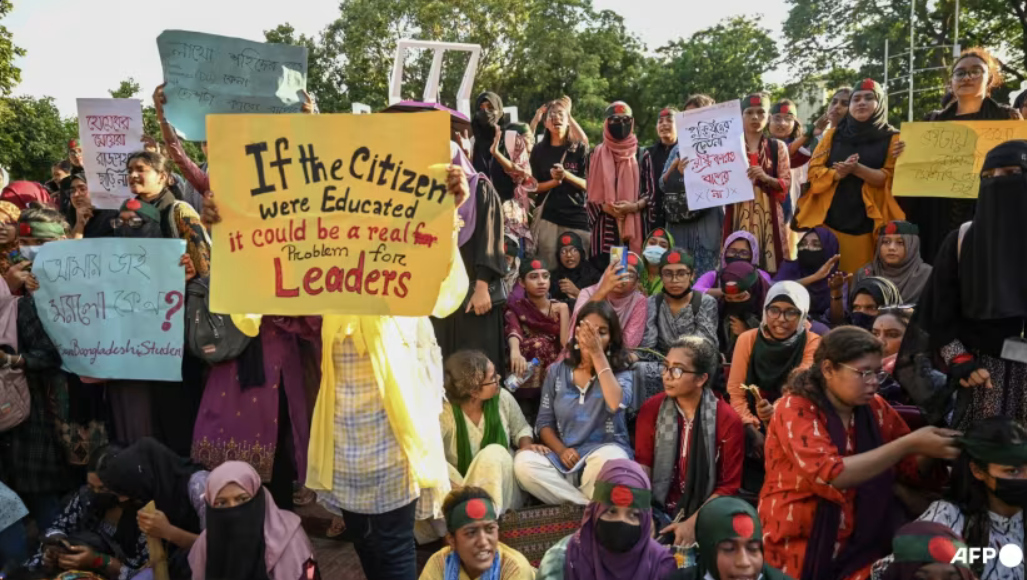Bangladesh shuts universities, colleges indefinitely after protests turn deadly , leaves 7 killed
17-Jul-2024The quotas have sparked anger among students who face high youth unemployment rates, with nearly 32 million young Bangladeshis not in work or education out of a total population of 170 million people.

Bangladesh announced it will indefinitely shut down all public and private universities from Wednesday (Jul 17) after protests by students against a quota system for government jobs turned deadly this week, leaving at least seven people dead and scores injured.
The South Asian nation has been rocked by protests for weeks over public sector job quotas, which include a 30 per cent reservation for family members of freedom fighters from the 1971 War of Independence from Pakistan.
The quotas have sparked anger among students who face high youth unemployment rates, with nearly 32 million young Bangladeshis not in work or education out of a total population of 170 million people.
Demonstrations intensified after Prime Minister Sheikh Hasina refused to meet the protesters' demands, citing ongoing court proceedings, and labelled those opposing the quota as "razakar" - a term used for those who allegedly collaborated with the Pakistani army during the 1971 war.
The protests turned violent this week when thousands of anti-quota protesters clashed with members of the student wing of the ruling Awami League party across the country. Police used rubber bullets and tear gas to disperse the protesters.
Six people, including at least three students, were killed during the clashes on Tuesday, police said.
"We urgently call on the government of Bangladesh to immediately guarantee the safety of all peaceful protesters and proper treatment of all those injured," Amnesty International said in a post on X.







